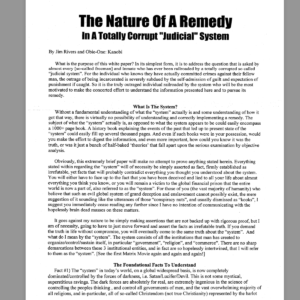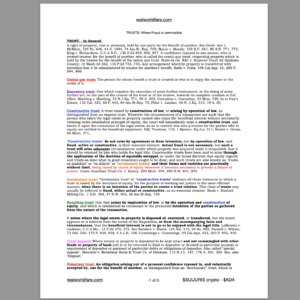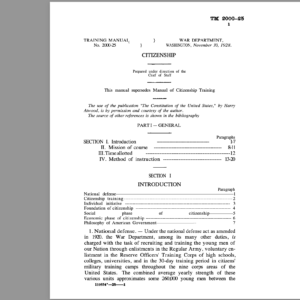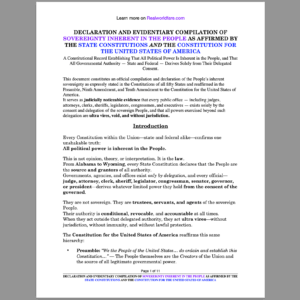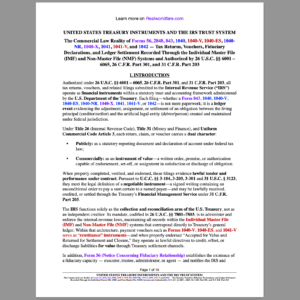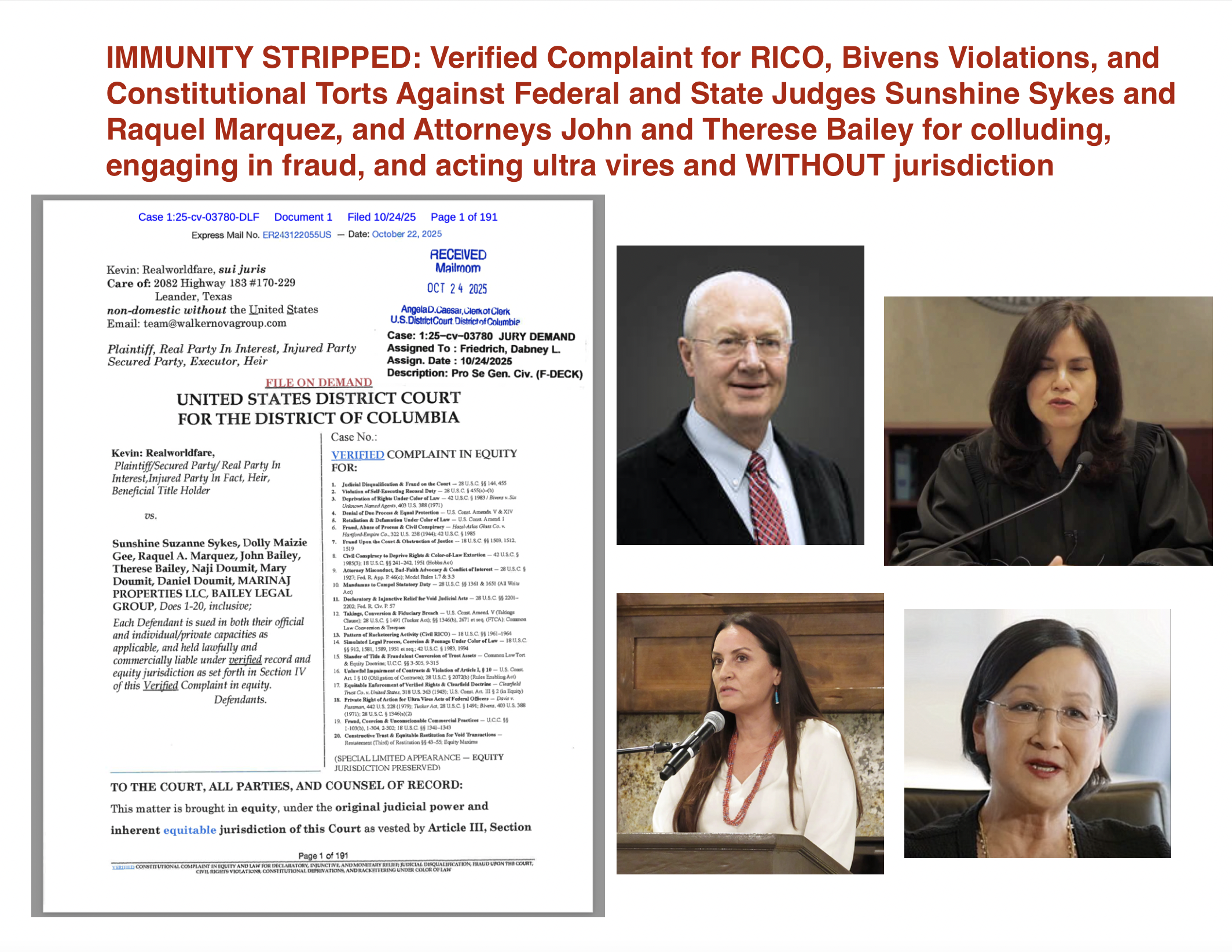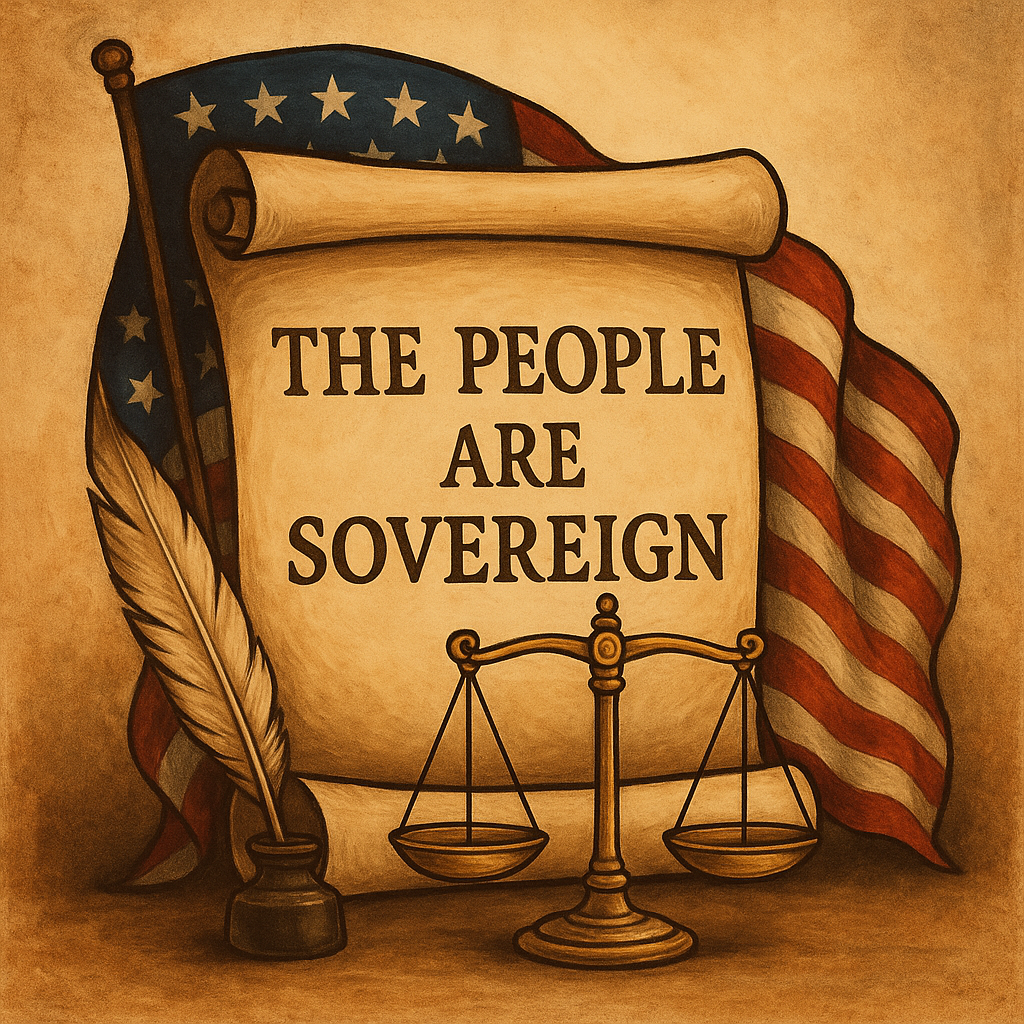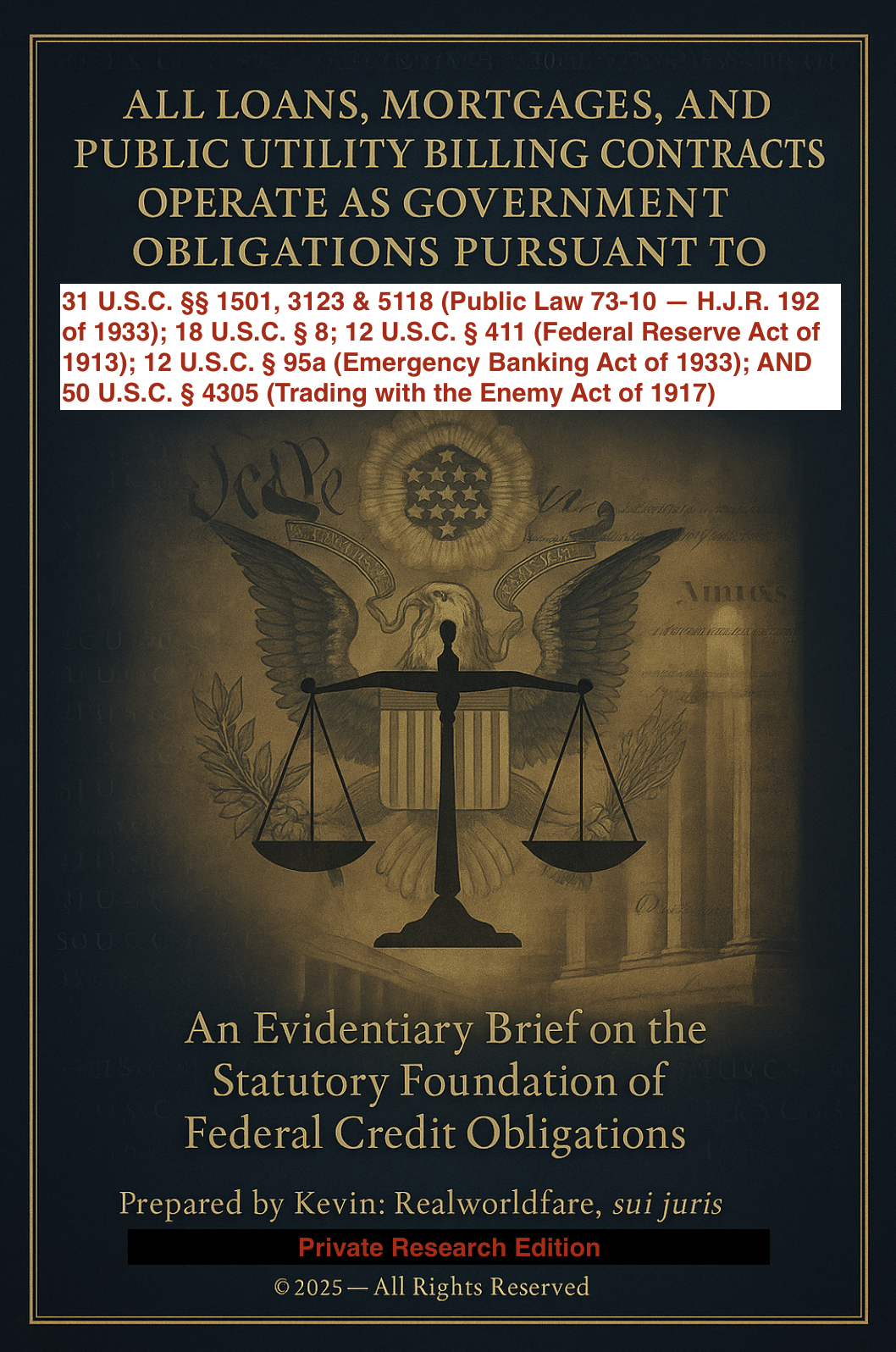Description
Our service is designed to empower private citizens by educating them on how to reclaim their financial freedom and secure ownership of their private automobiles. The purported loan amount doesn’t matter. We highlight key legal provisions, including the Uniform Commercial Code (U.C.C.), federal statutes, and Constitutional protections, to help you eliminate auto loan obligations, recover funds paid, and seek restitution for any violations in the loan process. We address the fact that 99% of auto loans are executed “under the color of law,” violating over a dozen laws, acts, and statutes. It’s crucial to understand that laws, statutes, and codes are not the same, and our service is tailored to educate you on these distinctions.
Key Services:
1. Auto “Loan” Elimination:
– We educate you on how U.C.C. § 3-311 and 3-603 can be used to challenge and settle disputed debts by addressing the accord and satisfaction of the instrument and the tender of payment.
– We provide insight into how U.C.C. § 3-104 concerning negotiable instruments can protect your rights against unlawful financial claims.
– We highlight that many auto loans are carried out “under the color of law,” meaning they are enforced as though they are legal when, in reality, they violate established legal principles and protections.
2. Asset & Fund Recoupment:
– We inform you about House Joint Resolution 192 of June 5, 1933 (Public Law 73-10) and Public Law: “Chap. 48, 48 Stat. 112“, which serve as the remedy for discharging debt obligations. These laws state that the Federal Government is obligated to discharge all debts, public and private, dollar for dollar. This powerful remedy, largely kept secret in this bankrupt nation, is central to reclaiming your financial standing.
– We also educate you on 31 U.S. Code § 5103 and 18 U.S. Code § 8, which establish the legitimacy of your claims for recovery and the definition of obligations.
– By highlighting the Gold Reserve Act of 1934, Public Law 73-87, Title III, Section 3, and House Joint Resolution 348 Public Resolution, Number 63, we guide you on how to use these legal frameworks to recover your funds.
3. Restitution for Improper Disclosure:
– We educate you on how to investigate and address any improper disclosures or violations under applicable laws, including 12 U.S. Code § 411, which relates to the issuance and backing of Federal Reserve notes, as well as your right to redeem these notes for lawful money.
– Article 1, Section 10 of the Constitution is highlighted to show how your rights are protected against the enforcement of obligations that violate Constitutional mandates, including prohibitions on anything but gold and silver coin as legal tender for debts.
– Our service highlights that most auto loans violate a host of laws, acts, and statutes, which are often mistakenly treated as equivalent but are distinctly different in their legal authority and application.
4. Claim Your Automobile:
– We educate you on how to legally claim your vehicle as a private automobile, free from liens and encumbrances, ensuring your property rights are fully upheld and protected under the law.
Take control of your financial future, reclaim your assets, and exercise your Constitutionally protected rights with our expert guidance.
What is the different between a private citizen, non-citizen national, State Citizen, Secured Party/Secured Creditor, Non-Resident Alien, and a U.S. citizen/citizen of the United States/Ens Legis/Legal Person/Straw man/Artificial Entity ?
- private citizen – is a private, living, breathing, man or woman whom is private and not subject to the jurisdiction thereof of the governed or by any de facto corporation like the U.S. Corporation or its subsidiaries like STATE OF CALIFORNIA, STATE OF TEXAS, etc.
- national/non-citizen national/national of the United States – a private citizen of anywhere in America; North or South America, anywhere whatsoever — can be on Indian territory/Tribal territory in Canada or Mexico; or you can be a resident of your city, located at one of the sovereign republic states, without interfacing jurisdiction in the Corporation “UNITED STATES.”
- State Citizen – an American National who is not an Indian, not from Canada, not from Mexico or South America or Caribbean. A State Citizen is one who is domiciled in the republic common law of California (Californian), Texas (Texan), Washington (Washatonian), New York, etc..
- Non-Resident Alien [with respect to the UNITED STATES (corporation)] – means you are residing in the republic, and in the view of the UNITED STATES (corporation), you are not residing in their jurisdiction, so they have no territorial jurisdiction; by being an alien (foreigner), they also do not have in personum jurisdiction.
- Secured Party/Secured Creditor (“SPC” or “SPSC”) – someone who is Creditor and whom controls, owns, and has a peculiar interest and/or lien on a U.S. Citizen and all of the U.S. citizen’s assets (tangible and intangible). A secured party is the “holder in due course” of the BIRTH CERTIFICATE/BANK NOTE (prima face evidence of a pledge, contract, registration, and trust) or Certificate of Citizenship (if born abroad), or permanent resident who has a green card and social security number. A Secured Party/Secured Creditor (“SPC” or “SPSC”) has voided and canceled the invisible, unknown, and/or fraudulent contracts the “U.S. Citizen”/’Chattel/Resident/Franchise/Artificial Entity/Trust/Subject, and has taken control of their BIRTH CERTIFICATE, ESTATE, their LEGAL NAME trust/Franchise/Artificial Entity; and can operate freely to discharge ALL debts via the U.S. Treasury, A Federal Reserve Bank, the IRS, via “Court” actions/Administrative Tribunal at will, or via administrative process. That is given you understand Law and that you can only “pay” with gold or silver not debt notes aka Dollars/Federal Reserve NOTES/portable bonds, or bonds, or bills of exchange/exchange contracts, or checks, or promissory notes. A Secured Party/Secured Creditor is a specific type of man or woman which at one point in time, perhaps for much of his or her life, has mistakenly thought they were themselves (not their artificial entity/ens legis/trust/franchise) were a “U.S. Citizen” or Permanent Resident, due to misinformation, propaganda, and improper disclosure,; but after discovering who they really are and understanding what citizenship really means, and the fraud and scam that the government is really a private corporation running a voluntary society, has preserved their rights and claim their sovereign status and unalienable rights, through educating themselves and executing various paperwork processes.
- “United States citizen”/citizen of the United States/U.S. citizen: A legal person/fiction/ens legis/franchise/trust which is not a living breathing man or woman. Instead a “U.S. citizen” is a jurisdictional creation of law, which is “subject to the jurisdiction” of the UNITED STATES (a company). U.S. citizen do not have unalienable rights protected by the Constitution. U.S. citizen are considered chattel/possessions of the United States/UNITED STATES. U.S. citizens are treated as second class or lower citizens without rights. Instead U.S. citizens are given “benefits” in exchange for their rights and exemptions. U.S. citizens, their 3rd party nine digital banking numbers known as Social Security Number (a Social Security Number is not required), and their assets are considered pledged to the United States/UNITED STATES, and U.S. citizens are merely allowed to “use” and “possess” their assets however, they true allodial ownership remains with the UNITED STATES and its Agents, Trustees, Executors, and Fiduciaries. The fourteenth amendment creates and defines citizenship of the “United States” (ie. the UNITED STATES is a corporation like Subway, McDonald’s, Best Buy, etc..).
” The fourteenth amendment creates and defines citizenship of the United States. It had long been contended, and had been held by many learned authorities, and had never been judicially decided to the contrary, that there was no such thing as a citizen of the United States, except as that condition arose from citizenship of some state. No mode existed, it was said, of obtaining a citizenship of the United States, except by first becoming a citizen of some state. This question is now at rest. The fourteenth amendment defines and declares who shall be citizens of the United States, to wit, “all persons born or naturalized in the United States, and subject to the jurisdiction thereof.” The latter qualification was intended to exclude the children of foreign representatives and the like. With this qualification, every person born in the United States or naturalized is declared to be a citizen of the United States and of the state wherein he resides.
After creating and defining citizenship of the United States, the fourteenth amendment provides, that “no state shall make or enforce any law which shall abridge the privileges or immunities of citizens of the United States.” This clause is intended to be a protection, not to all our rights, but to our rights as citizens of the United States only; that is to rights existing or belonging to that condition or capacity. The expression, citizen of a state, used in the previous paragraph, is carefully omitted here. In article 4. § 2, subd. 1. of the constitution of the United States, it had been already provided, that “the citizens of each state shall be entitled to all privileges and immunities of citizens in the several states.” The rights of citizens of the states and of citizens of the United States are each guarded by these different provisions. That these rights are separate and distinct, was held in the Slaughterhouse Cases, 16 “Wall. [83 U. S.] 36, recently decided by the supreme court. The rights of citizens of the state, as such, are not under consideration in the fourteenth amendment. They stand as they did before the adoption of the fourteenth amendment, and are fully guaranteed by other provisions. The rights of citizens of the states have been the subject of judicial decision on more than one occasion. “-[UNITED STATES V. ANTHONY (1873)]
See: The Constitution: Gold and Silver is The Only Real Money and Everything else is Credit
SOME FREE Important facts and points to consider:
- WHEREAS every living man or woman, whom is the bearer of a BIRTH CERTIFICATE/BANK NOTE, with their straw man/ens legis/franchise/chattel/U.S. citizen listed on said BIRTH CERTIFICATE/BANK NOTE, has prima facie evidence of a trust, registration, entitlement, and contract agreement, and is proceeding sui juris,in propria persona, and is the holder in due course, trustee, executor, and the secured party.
- House Joint Resolution 192 of June 5 1933, Public Law 73-10 expressly stipulates: every provision contained in or made with respect to any obligation which purports to give the obligee a right to require payment in gold or a particular kind of coin or currency, or in an amount in money of the United States measured thereby, is declared to be against public policy; and no such provision shall be contained in or made with respect to any obligation hereafter incurred. Every obligation, heretofore of hereafter incurred, whether or not any such provision is contained therein or made with respect thereto, shall be discharged upon payment, dollar for dollar, in any coin or currency which at the time of payment is legal tender for public and private debts.
- 18 U.S. Code § 8 – Obligation or other security of the United States defined, explicitly stipulates that “The term “obligation or other security of the United States” includes all bonds, certificates of indebtedness, national bank currency, Federal Reserve notes, Federal Reserve bank notes, coupons, United States notes, Treasury notes, gold certificates, silver certificates, fractional notes, certificates of deposit, bills, checks, or drafts for money, drawn by or upon authorized officers of the United States, stamps and other representatives of value, of whatever denomination, issued under any Act of Congress, and canceled United States stamps.”
- The Gold Reserve Act of 1934, Public Law 73-87, Title III, Section 3, stipulates: “(a) every provision contained in or made with respect to any obligation which purports to give the obligee a right to require payment in gold or a particular kind of coin or currency of the United States, or in an amount in money of the United States measured thereby, is declared to be against public policy. (b) Every obligation, heretofore or hereafter incurred, shall be discharged upon payment, dollar for dollar, in any coin or currency which at the time of payment is legal tender for public and private debts.
- House Joint Resolution 348 Public Resolution, Number 63, declared provisions known as “gold clauses” to be against public policy, prohibited their use in obligations thereafter incurred, and provided that money of the United States legal tender for obligations generally was legal tender for all obligations with or without gold clauses (ie: bills of exchange, bonds, private checks, vouchers, coupons, Dollars/FRNs, stamps, and more): and Whereas the United States has paid and will continue to pay to the holder of all its securities their principal and interest, dollar for dollar, in lawful money of the United States: Now, there, be it Resolved by the Senate and House of Representatives of the Untied States of America in Congress assembled, That the lawful holder of the coins or currencies of the United States shall be entitled to exchange them, dollar for dollar, for other coins or currencies which may be lawfully acquired and are legal tender for public and private debts: and that the owners of the gold clause receive immediate payment of the stated dollar amount thereof with interest to the date of payment or to prior maturity or to prior redemption date, whichever is earlier. The Secretary of the Treasury is authorized and directed to make such exchanges and payments upon presentation hereunder in the manner provided in regulations prescribed.
- Article 1, Section 10 of the Constitution expressly stipulates: No State shall enter into any Treaty, Alliance, or Confederation; grant Letters of Marque and Reprisal; coin Money; emit Bills of Credit; make any Thing but gold and silver Coin a Tender in Payment of Debts; pass any Bill of Attainder, ex post facto Law, or Law impairing the Obligation of Contracts, or grant any Title of Nobility.
- the 1940 Buck Act and “Federal Areas”: What is a “Federal area”? A “Federal area” is any area designated by any agency, department, or establishment of the federal government. This includes the Social Security areas designated by the Social Security Administration, any public housing area that has federal funding, a home that has a federal bank loan, a road that has federal funding, and almost everything that the federal government touches through any type of aid. Springfield v. Kenny, 104 N.E. 2d 65 (1951 App.). This “Federal area” attaches to anyone who has a Social Security Number or any personal contact with the federal or state governments. Through this mechanism, the federal government usurped the Sovereignty of the People, as well as the Sovereignty of the several states, by creating “Federal areas” within the boundaries of the states under the authority of Article 4, Section 3, Clause 2 (4:3:2) in the federal Constitution, which states: 2. The Congress shall have Power to dispose of and make all needful Rules and Regulations respecting the Territory or other Property belonging to the United States, and nothing in this Constitution shall be so construed as to prejudice any claims of the United States, or of any particular State.Therefore, all U.S. citizens [i.e. citizens of the District of Columbia] “residing” in one of the states of the Union, are classified as property, as franchisees of the federal government, and as an “individual entity”. See Wheeling Steel Corp. v. Fox, 298 U.S. 193, 80 L.Ed. 1143, 56 S.Ct. 773. Under the “Buck Act”, 4 U.S.C.S. Secs. 105-113, the federal government has created a “Federal area” within the boundaries of all the several states. This area is similar to any territory that the federal government acquires through purchase, conquest or treaty, thereby imposing federal territorial law upon all people in this “Federal area”. Federal territorial law is evidenced by the Executive Branch’s yellow-fringed U.S. flag flying in schools, offices and all courtrooms.
-
Executive Order 6102 was signed into effect by President Roosevelt. This executive order required all gold and gold certificates to be surrendered to the federal government by May 1, 1933. House Joint Resolution 192 was then passed by Congress on June 5, 1933. This law was passed to do away with the gold clause in the constitution and in all public and private contracts.
in 1933, and with House Joint Resolution 192 of June 5 1933, they took all the Gold, all the true money, all the property (and instituted eminent domain and property taxes/divided land titles), and instituted the income tax to control the labor of the people. In addition, with HJR 192 is when they instituted the Birth Certificates to control the people and have the future American people become the collateral for all the federal governments debts. Yes…that’s right – your birth certificate is the TITLE to your body and it has been pledged as an asset. The holder/holder in due course/secured party has the right to the taxes and fines, fees, etc that you pay to the government through judgments, court cases, payroll, income taxes, property taxes, etc. Everything is pre-paid and thus everything is a “tax.”
House Joint Resolution 192 of June 5 1933, Public Law 73-10 (HJR 192):
[“]Now therefore be it resolved by the Senate and House of Representatives of the United States of America in Congress assembled, That (a) every provision contained in or made with respect to any obligation which purports to give the obligee a right to require payment in gold or a particular kind of coin or currency, or in an amount in money of the United States measured thereby, is declared to be against public policy; and no such provision shall be contained in or made with respect to any obligation hereafter incurred.
Every obligation, heretofore of hereafter incurred, whether or not any such provision is contained therein or made with respect thereto, shall be discharged upon payment, dollar for dollar, in any coin or currency which at the time of payment is legal tender for public and private debts. Any such provision contained in any law authorizing obligations to be issued by or under authority of the United States, is hereby repealed, but the repeal of any such provision shall not invalidate any other provision or authority continued in such law.[“]
On June 5, 1933, Congress enacted HJR-192 to suspend the gold standard and to abrogate the gold clause. This resolution declared that “Whereas the holding or dealing in gold affect the public interest, and are therefore subject to proper regulation and restriction; and whereas the existing emergency has disclosed that provisions of obligations which purport to give the obligee a right to require payment in gold or a particular kind of coin or currency. . . are inconsistent with the declared policy of congress. . . in the payment of debts.
This resolution declared that any obligation requiring “payment in gold or a particular kind of coin or currency, or in an amount in money policy; and . . . Every obligation heretofore or hereafter incurred, shall be discharged upon payment, dollar for dollar, in any coin or currency which at the time of payment is legal tender for public and private debts.”
In 1935, the federal government instituted Social Security. The Social Security Board then created 10 Social Security “Districts”. The combination of these “Districts” resulted in a “Federal area” which covered all the several states like a clear plastic overlay.
In 1939, the federal government instituted the “Public Salary Tax Act of 1939”. This Act is a municipal law of the District of Columbia for taxing all federal and state government employees and those who live and work in any “Federal area”.
If you are reading this in America and have a home and mortgage, your home IS ALREADY PAID FOR. Your mortgage is FAKE!! WAKE UP. ALL foreclosures in America 101% are FRAUD! When you give these fraudulent and shady “banks” a “promissory note” and you receive a “check” or “credit”… pic.twitter.com/1ntRNcuxuD
— KEVINOMICS ™ (@KEVINOMICS_) July 23, 2024
A layman’s translation: ALL Mortgages in the United States are inherently fraudulent, and each payment made towards a mortgage is an act of coercion, extortion, and defraudment, due to your ego, lack of education, and the lack of proper ledgering, settling, and closing of the… pic.twitter.com/mzzXS1nmX8
— KEVINOMICS ™ (@KEVINOMICS_) July 23, 2024


